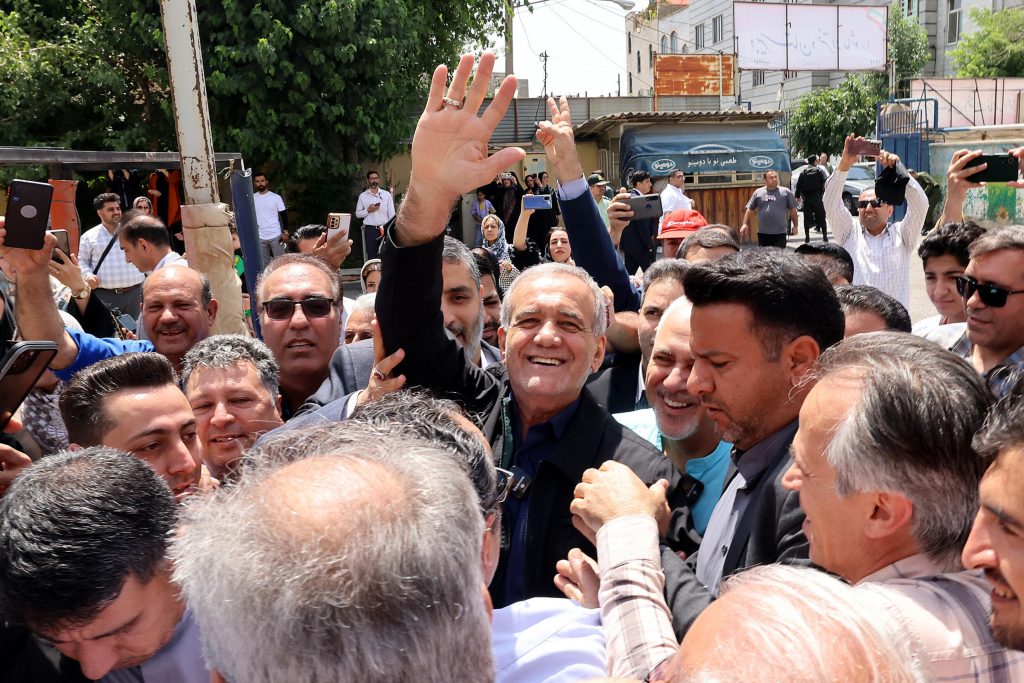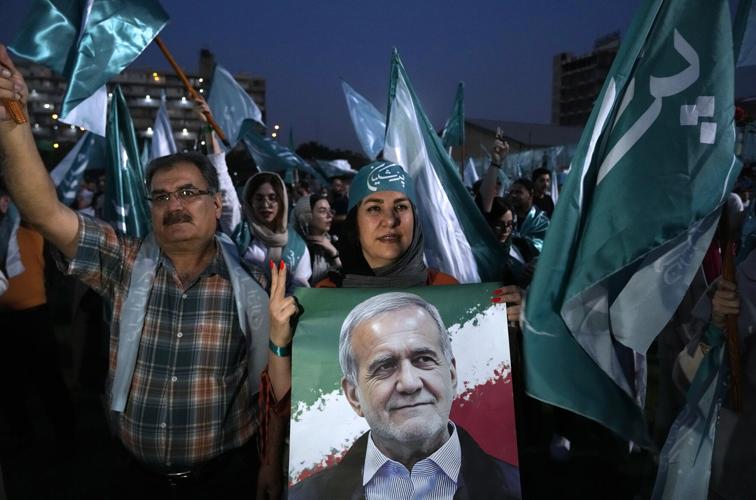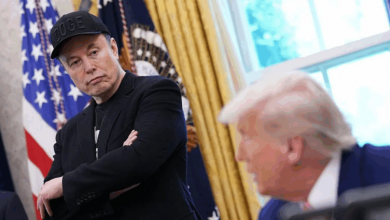Masoud Pezeshkian elected Iran’s first reformist president in two decades

In a historic development, Masoud Pezeshkian, a wildcard candidate, secured victory over hardliner Saeed Jalili in Iran’s presidential run-off election, marking the first time in nearly two decades that a reformist will assume the presidency.
The 69-year-old former heart surgeon and health minister campaigned on promises to moderate Iran’s conservative stance and improve relations with the West.
He criticized the country’s morality police and advocated for negotiations to revive the faltering 2015 nuclear deal.
However, analysts remain cautious about Pezeshkian’s potential to bring about substantial changes within an establishment dominated by ultraconservatives.
His candidacy surprised many after the Guardian Council, which vets candidates based on religious and revolutionary credentials, initially barred prominent reformists and moderates, including Pezeshkian in past elections.
His eventual approval signaled a significant shift, though he maintained loyalty to Iran’s Supreme Leader, Ayatollah Ali Khamenei.
Born in 1954 in Mahabad, Masoud Pezeshkian, of mixed Azeri-Kurdish descent, grew up bilingual and has garnered support from Iran’s diverse ethnic minority groups.
His medical career and dedication during the Iran-Iraq War reflect his commitment to public service.
Pezeshkian faced personal tragedy when his wife and son died in a car accident in 1994, raising his remaining children alone, a story he shared during his campaign.
His political rise began in the early 2000s under President Mohammad Khatami, serving as health minister and later representing Tabriz in parliament.

Notably, Pezeshkian drew attention for criticizing the government’s handling of protests following Iran’s disputed 2009 presidential election, which earned him rebuke from hardliners.
His candidacy this year, backed by major reformist groups and endorsed by figures like Khatami and former President Hassan Rouhani, garnered narrow victory amid record low turnout and calls for boycotts.
In his post-election message, Pezeshkian emphasized a collaborative approach, calling for unity and pledging to navigate challenges with the support of the Iranian people.
Despite his reformist stance, he underscores his adherence to the Supreme Leader, describing himself as a “reformist principlist,” aligning with conservative principles while advocating for reform.
Observers suggest that his ability to navigate these dual roles will be pivotal to his presidency’s success in navigating Iran’s complex political landscape.
Source-BBC





